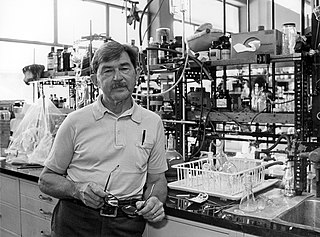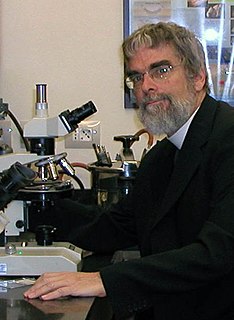A Quote by Henry Taube
The benefits of science are not to be reckoned only in terms of the physical.
Related Quotes
Undeveloped though the science [of chemistry] is, it already has great power to bring benefits. Those accruing to physical welfare are readily recognized, as in providing cures, improving the materials needed for everyday living, moving to ameliorate the harm which mankind by its sheer numbers does to the environment, to say nothing of that which even today attends industrial development. And as we continue to improve our understanding of the basic science on which applications increasingly depend, material benefits of this and other kinds are secured for the future.
A century ago mainstream science was still quite happy to countenance vital and mental powers which had a 'downwards' causal influence on the physical realm in a straightforwardly interactionist way. It was only in the middle of the last century that science finally concluded that there are no such non-physical forces. At which point a whole pile of smart philosophers (Feigl, Smart, Putnam, Davidson, Lewis) quickly pointed out that mental, biological and social phenomena must themselves be physical, in order to produce the physical effects that they do.
Studying the universe engages us in something bigger than ourselves. Science tries to describe, in terms we can only grasp intuitively, things that are beyond our intuition. . . . all we can hope for is that our physical descriptions, like a song or a good painting, are a faithful evocation of some ineffable truth.
Science is empirical, all about physical senses that tell us about the world. But physical senses are not the only senses we have. Nobody has ever seen a thought. Nobody has ever seen a feeling. And yet thoughts and feelings are where we live our lives most immediately, and science cannot connect with that.
Statistical science is indispensable to modern statesmanship. In legislation as in physical science it is beginning to be understood that we can control terrestrial forces only by obeying their laws. The legislator must formulate in his statutes not only the national will, but also those great laws of social life revealed by statistics.
Physical objects are conceptually imported into the situation as convenient intermediaries not by definition in terms of experience, but simply as irreducible posits comparable, epistemologically, to the gods of Homer . . . For my part I do, qua lay physicist, believe in physical objects and not in Homer's gods; and I consider it a scientific error to believe otherwise. But in point of epistemological footing, the physical objects and the gods differ only in degree and not in kind. Both sorts of entities enter our conceptions only as cultural posits.
We recognize that our progress as a species does not have to be defined in terms of wealth or material and physical growth any more than our progress as individuals has to be defined in terms of physical growth. Physical growth of the body reaches a limit, but the character and the soul of the individual continues to grow, or at least has a chance to continue, often to our last breath. It is simple minded to define our well being in material terms, when that well-being has an aesthetic dimension, and intellectual dimension, a moral dimension.
Since man does not create physical matter, those who handle material objects in the production process are not producers in that sense. Economic benefits result from the transformation of matter in form, location, or availability (intellectually or temporally). It is these transformations that create economic benefits valued by consumers, and whoever arranges such transformations contributes to the value of things, whether his hands actually come into contact with physical objects or not.




































